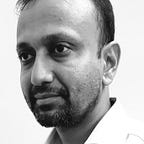The Superschool (part 3)
(This was a story about the school, and the class I took, that I started writing in 2014–15, intending to publish as a book. With so many other pressing work claiming my time, this was never completed. But I thought I will put up the unfinished work anyway, a bit of it everyday, for our students to read. This is the third instalment of the story)
We are nearing the yearly ASSET test. We put our children through this test every year to benchmark their performance compared to the rest of the country. This is similar to the standardized tests that are quite common in US or other developed countries. In India, the concept is fairly new — ASSET is just 10 years old. But looking at their success, several new wannabe players sprouted up, offering ‘cheap’ assessment services to schools. The schools themselves of course know no better to assess the assessment services.
ASSET checks a student’s basic skills — ability to read, ability to apply common sense to solve problems. The other assessment services have memory based questions that test knowledge. But most schools are not enlightened enough to differentiate between the two approaches. They get swayed by fancy names. Some of the tests have an ‘Olympiad’ or ‘International’ inserted in their names. Obviously, something that is of ‘international’ standard cannot be bad, right?
Naming is a big scam, particularly in the domain of education. There are international schools which have neither any international student, nor international teaching methods. There are schools which exploit the names of famous people of the past, like Tagore. Tagore would be turning in his grave if he could see what kind of education most of those schools impart. There are schools which use the name of Rishi Aurobindo, or Swami Vivekananda. If you run out of ideas, put a saint before an English sounding name. St John’s School, St Francis’ School, St Paul’s School. Something with such a name must be providing quality English medium education, parents think.
I wonder why they did not (dis)honour Mahatma Gandhi by using his name in schools. I find it quite baffling why they named so many roads after Gandhi, but not schools or colleges. May be Gandhi had nothing useful to teach us. May be he is not too fashionable, with his loincloth and focus on cleaning toilets. Or maybe he walked a lot on roads — so it is better to name roads after him.
But I digress. My students say I can never stick to one point, and they are right.
Coming back to ASSET, thankfully it scores in terms of how many students sit for it. With lakhs of students all over India sitting for it, it comfortably beats those other con-tests. We cannot make parents understand the finer points related to why ASSET is better — but at least we can tell them that ASSET is very popular. That sells. For anything to be good, it has to be liked by a large number of people.
So by definition, anything new cannot be good — because new things are not yet liked by a large number of people. ‘Is your method being used in other schools, or is it entirely new?’ parents ask fearfully. It is futile to tell them something new may not necessarily be bad. So I take a different track. ‘Yes, most schools in US or UK teach in this way,’ I respond. Finally, I discover the golden balance of being truthful as well as politically correct.
I digress again. Come back to ASSET, for god’s sake.
In the class, students show me the question paper of an assessment that was recently taken by another school. An International Olympiad. The biggest Olympiad, the question paper proudly claims. Biggest among how many, it does not say. It must feel quite lonely at the top, when you win a competition where you are the only participant.
They are eager to show me the questions from this test. There is a question about clock in the mental ability section:
A clock hand is currently at 6. It then goes 90 degrees clockwise and then 135 degrees anti-clockwise. Where is it now?
‘Has the clock gone mad that it would behave in this way, swinging like a pendulum? Why would a clock go anti-clockwise at all? It would cease to be a clock then.’ I retort.
The class sees the merit in my argument. This question is not worth solving, they decide. They move on to another question.
‘Sir, see this question — who is the father of computer? There are four choices. Do you know which one is correct?’ Motu asks me.
‘No, I don’t know who the father of computer is, but I know who the 100,000th great-grandfather of computer is. According to the theory of evolution, it must be a monkey.’
‘And one billionth great-grandfather of computer must be a virus,’ Aranya takes the argument forward.
‘Such an evil grandfather, instead of protecting its descendants, it attacks them!’ Bhau says.
Jokes apart, it is really a sad state of affairs when we ask our children to memorise who the father of computer was, but do not teach them how to use computers. Einstein was right when he said, ‘Only two things are infinite — the universe and the human stupidity. And I am not sure about the former.’
But then Einstein was right about most of the things.
